What happened?
Emergency services were called out after explosions were heard in the ‘Grunewald’ forest in western Berlin in the early hours of Thursday morning.
It then emerged that a fire had broken out near a police munitions storage site, all on one of the hottest days of the year when temperatures were forecast to reach around 38C in the German capital.
As explosions continued at the site, sending debris flying into the air, firefighters weren’t initially able to get near the flames to extinguish it. Emergency services set up a 1,000-metre safety zone around the area.
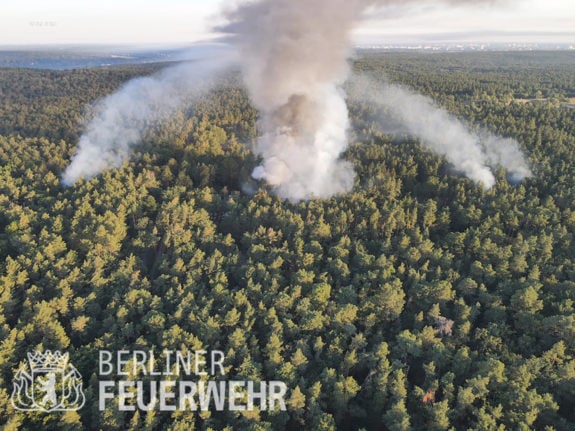
Later on Thursday afternoon, Berlin fire brigade spokesman Thomas Kirstein said the situation was “under control and there was no danger for Berliners” but that the fire was expected to last for some time.
No one has been hurt by the fires. Around 250 emergency workers were deployed to the site.
READ ALSO: Blasts ring out as forest fire rages in Berlin’s Grunewald
How was the fire being tackled?
The German army (Bundeswehr) was called in. They sent a tank aimed at evacuating munitions at the affected storage site as well as remote-controlled de-mining robots, while drones circled the air to assess the emergency.
Water cannons were also deployed around the safety zone to prevent the fire from spreading.
Berlin mayor Franziska Giffey interrupted her holiday to visit the scene, calling the events “unprecedented in the post-war history of Berlin”.
Giffey advised people in Berlin to close their windows but said the danger was minimal as there were no residential buildings within a two-kilometre (1.2-mile) radius and so no need to issue evacuation orders.
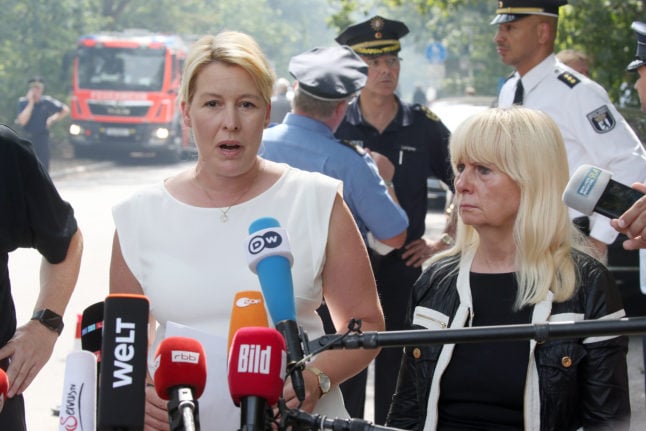
“It would be much more difficult if there were residential buildings nearby,” she said.
What caused the blaze?
That’s still unclear. Police say they are investigating what started the fire exactly.
The store in question holds munitions uncovered by police, but also unexploded World War II-era ordnance which is regularly dug up during construction works.
Giffey said local authorities would “have to think about how to deal with this munitions site in the future and whether such a place is the right one in Berlin”.
Is Grunewald a popular site?
Very much so. The sprawling forest on the edge of Berlin is home to lots of hiking trails and is even near some popular lakes, such as the Krumme Lanke. It’s also near the Wannsee and Havel river.
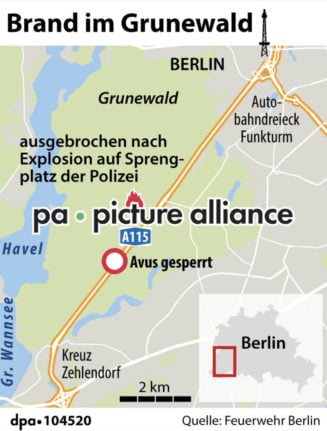
Authorities appealed for the public to avoid the forest, which is regularly visited by both locals and tourists.
Deutsche Bahn said regional and long-distance transport was disrupted due to the blaze.
A part of the Avus motorway between Spanischer Allee and Hüttenweg was also closed in both directions, as well as Kronprinzessinnenweg and Havelchaussee, according to the Berlin traffic centre.
Aren’t forest fires and strong heat causing problems elsewhere?
Yes. Authorities on Thursday said no firefighting choppers were available as they were already in use to calm forest fires in eastern Germany.
However, they also said the 1,000-metre safety zone applied to the air, so there was a limit to how useful it would be to drop water on the fire from above.
The German capital is rarely hit by forest fires, even though its 29,000 hectares of forests make it one of the greenest cities in the world.
Brandenburg, the region surrounding Berlin, as well as parts of eastern Germany have for days been battling forest fires.
Parts of Germany were also recently hit by forest fires during heatwaves this summer.
Temperatures were expected to climb as high as 40C across parts of Germany on Thursday. However, it is set to cool down on Friday and thunderstorms are set to sweep in from the west.
With reporting by AFP’s David COURBET

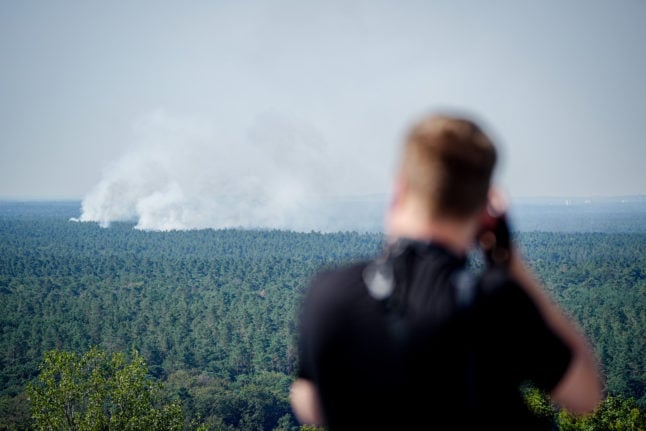

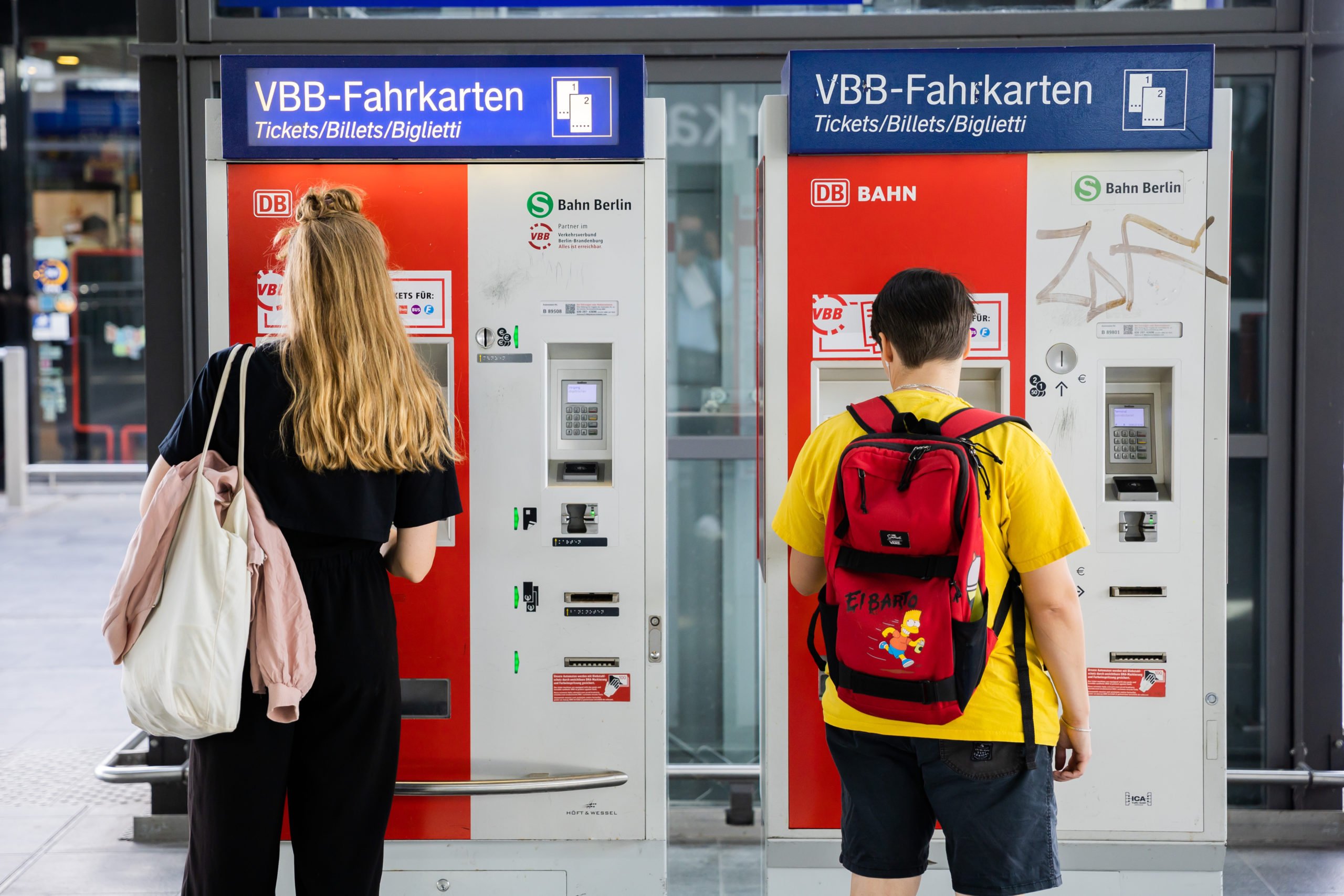
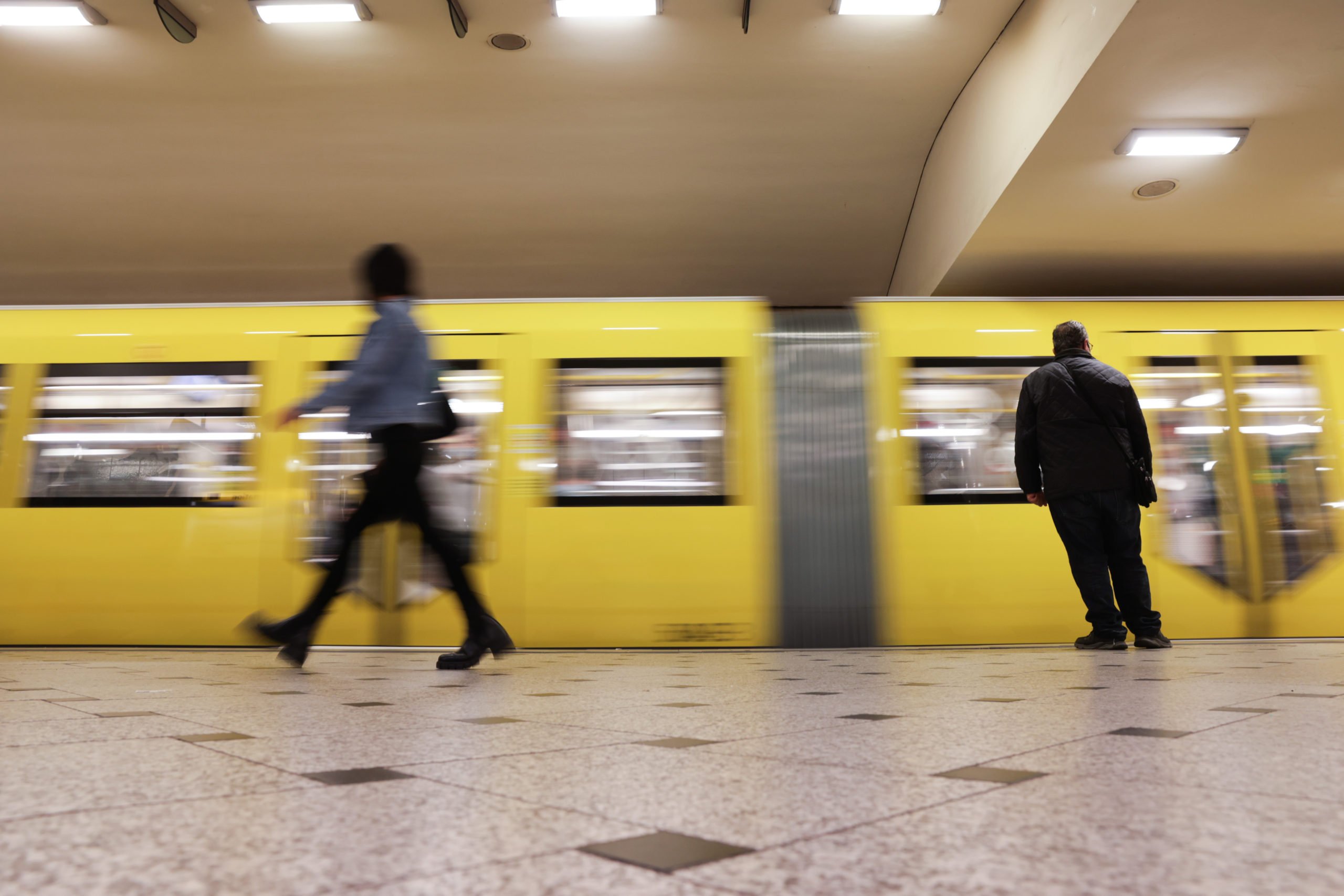
 Please whitelist us to continue reading.
Please whitelist us to continue reading.
Member comments